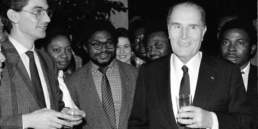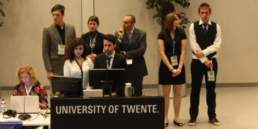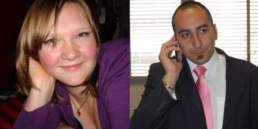AEGEE is famous for its ambitious European projects. But are they always well managed? “No”, says Percin Imrek, former Projects Director of AEGEE-Europe and Agora chairman. Percin, who just finished managing his project “Where Does Europe End” and wants to help AEGEE members to become better project managers. Where? In his Agora workshop, which he gives together with Marta Gutierrez Benet.
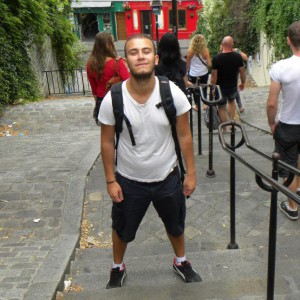
Golden Times: Percin, you and Marta Gutierrez Benet will give a workshop about project management at the Agora Budapest. What can the participants learn there?
Percin Imrek: In a nutshell, this workshop aims to give the participants a sneak peek into project management. They can learn the basics of project management, tools that would facilitate a good project, strategies and most importantly, experiences.
Golden Times: What kind of experience do you and Marta have with projects?
Percin: Plenty actually. I am the project founder of the “Where Does Europe End” (WDEE) project, and was acting as the project manager for a long time. After a break, I became the project manager of WDEE again for the closure. I was also the Projects Director of AEGEE-Europe in 2008-2009. Marta Gutierrez Benet took active part in the Beyond Europe project, which organised several events, including field visits to India and South Africa. Marta was involved in the project from the drafting part to the closure. She is now working in the European Commission.
Golden Times: Which typical mistakes do you see in project management in AEGEE?
Percin: I see four areas: lack of focus, lack of clear goals, lack of motivation and too much circulation in the teams.
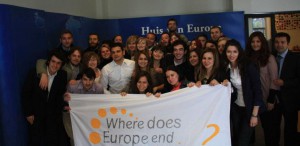
Golden Times: Please elaborate.
Percin: Lack of focus: Mostly different team members have different expectations, and this might create wild differences that might put an end to the project. Lack of clear goals: Since we have this problem of setting up clear goals in a project, at some point, team members feel lost and drifted away from what was intended from the very beginning. Lack of motivation: Since it is voluntary work we are doing, team members are very prone to get demotivated, which can be related to any factor. Too much circulation in the teams: Mostly, people stay active in AEGEE around six months or one year. For a project this is too short. When there are many members going out and coming in, it makes it very hard for the project to proceed.
Golden Times: Indeed, many projects are not focused in its structure. Why?
Percin: We are not professionals and we are an interdisciplinary organisation. Structure is not our strongest side. Mostly AEGEE projects run on motivation, good will and individual skills, which is definitely not enough.
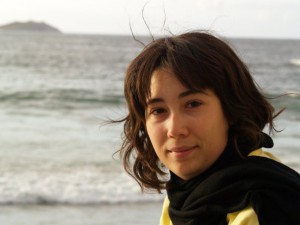
Golden Times: Many projects lose their focus towards the end. There are no clear results produced or promoted. How could that be improved?
Percin: Whenever a project team is formed, there should be a compulsory training – organised by CD or Academy – that is only for them and should be three or four days long. There they should be taught about project management, teamwork, motivation, soft skills and more.
Golden Times: Isn’t project skills training part of European Schools?
Percin: Yes, it is a part of European Schools. Our aim is to give an introduction to such tools and trainings to European Schools as well. We do not plan to teach people how to manage projects in two hours, but we want to make them learn how to make the steps during that phase. And of course, the European School is an important step that we would like our participants to take.
Golden Times: Don’t project teams in AEGEE usually get a training within the project?
Percin: Practically, yes. But one should learn the basics and theory to be more fluent before starting something. Practical experience will be an added value, while you’ll put it on top of your theoretical experience.
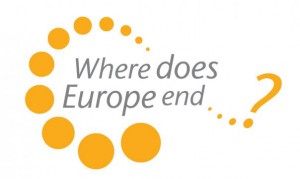 Golden Times: One Agora workshop hardly is enough. What is needed to improve project management in AEGEE on a more permanent basis?
Golden Times: One Agora workshop hardly is enough. What is needed to improve project management in AEGEE on a more permanent basis?
Percin: I don’t think I am the person who should answer this question. I have already spoken about the problems I see in the projects in AEGEE. We have to stop acting like these problems do not exist, and see how we can change it.
Golden Times: Aside from the workshop you will also have a progress meeting about the project “Where Does Europe End”. Can you briefly present the project in two or three sentences?
Percin: WDEE aimed to investigate the borders of Europe in people’s minds, where they think Europe ends, and why. It also tackled different topics, such as Human Rights, religion, regionalism and others. Experts, students and citizens discussed to what extent they think these issues are correlated with Europe and the reasons for it.
Golden Times: The project is over. What do you want to achieve with the progress meeting?
Percin: To deliver our results, our experiences and anecdotes. Also another aim is to show people that there are successful projects in AEGEE, and you do not need to be a professional to manage that.
Golden Times: Where can people find out more about WDEE?
Percin: The results will be shown during our workshop. And our booklet will be published quite soon. Keep tuned.
More about Beond Europe: http://www.projects.aegee.org/beyondeurope/
About Percin Imrek
Percin Imrek started his AEGEE career in AEGEE-Çanakkale in Turkey. In 2008 he joined the CD as Projects Director and became later Chairman of Agora and EBM of AEGEE-Europe – and founded the project Where Does Europe End. Percin holds a Master degree in European Studies of the K.U. Leuven and graduated in Political and Administrative Studies from the College of Europe in Bruges. Currently he is a writer for Nouvelle Europe, a French online newspaper.

